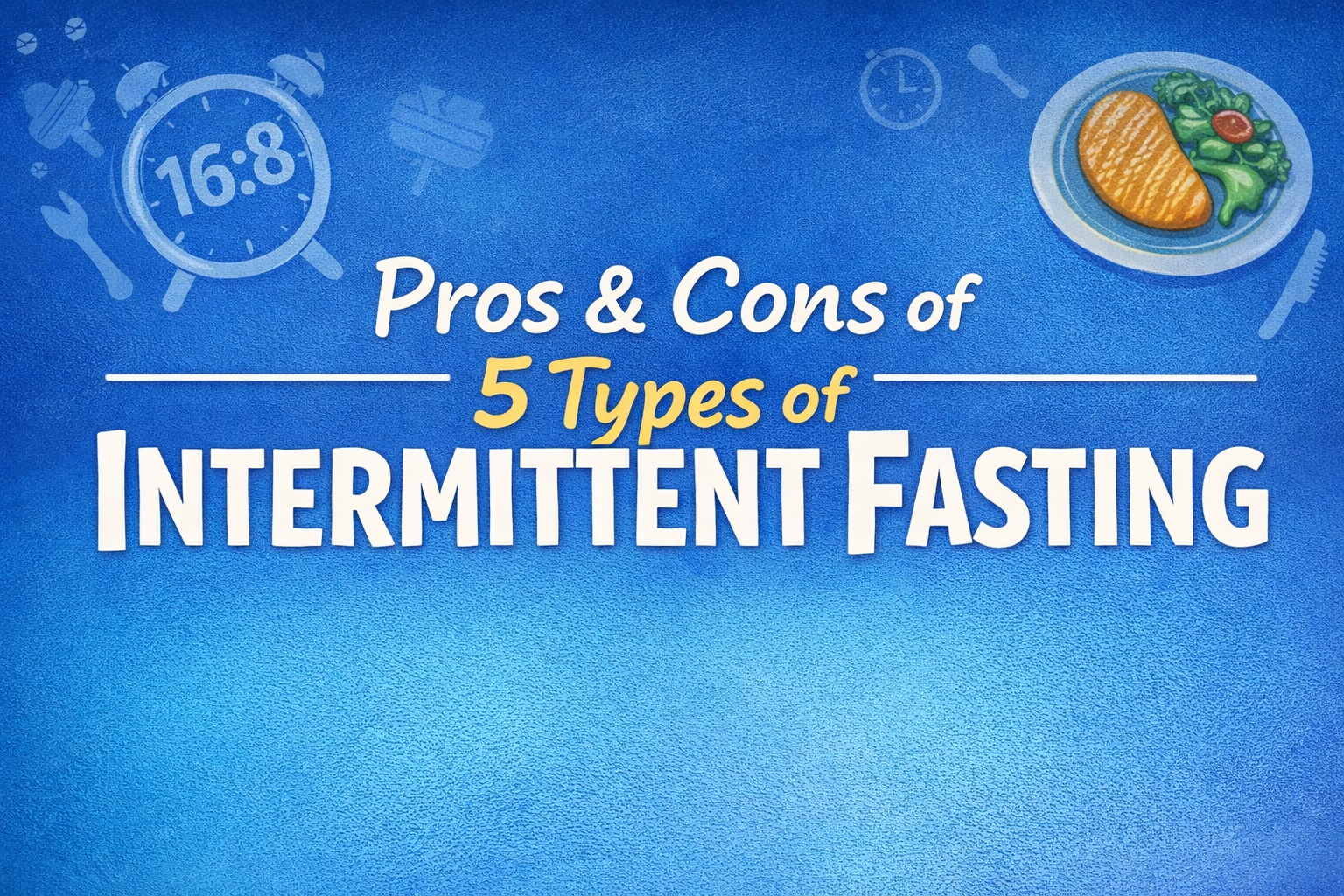Since time immemorial, fasting, or voluntary abstinence from food and drink for a certain period, has been a significant practice across various cultures and religions, symbolizing spiritual growth, self-discipline, and empathy. In recent years, fasting has evolved from a traditional practice to a modern fitness trend, with intermittent fasting gaining popularity worldwide. Research indicates that this unique eating pattern can aid in weight loss, improve metabolic health, manage stress, protect against diseases, and potentially extend lifespan. Let us find out the pros and cons of intermittent fasting from an expert dietitian and nutritionist in Delhi for weight loss, Avni Kaul.
What is Intermittent Fasting (IF)?
Intermittent fasting (IF) is a popular dietary approach that emphasizes time-restricted eating, cycling through periods of fasting, and feasting. Instead of focusing on what to eat, Intermittent fasting specifies when to eat, with fasting periods typically lasting between 12 and 40 hours. The most common method is the 16/8 approach, where individuals eat within an 8-hour window and fast for the remaining 16 hours daily. Other variations include fasting on alternate days or specific days of the week. This method of strategic eating has gained global attention for its simplicity and potential health benefits.
What are the 5 Types of Intermittent Fasting?
- 16/8 (Time-Restricted Eating): Fast for 16 hours, eat during an 8-hour window.
- 5:2 Method: Eat normally for 5 days, and consume 25% of typical calories for 2 days.
- Eat Stop Eat: Fast for 24 hours once or twice a week, consuming zero-calorie beverages only.
- Alternate-day fasting involves fasting every other day and eating freely on non-fasting days. You consume your regular diet on Day 1 and restrict intake to calorie-free liquids on Day 2.
- The Warrior Diet is a form of intermittent fasting inspired by ancient warriors, involving a 20-hour calorie restriction with light foods during the day and a single large, healthy meal within a 4-hour evening window. It emphasizes consuming whole, unprocessed foods similar to those eaten after a hunt.
What are the pros of intermittent fasting?
- Weight Management – Intermittent fasting promotes weight loss and fitness by enhancing fat-burning processes. It encourages ketogenesis, where stored fat is used for fuel instead of glucose, and helps maintain a caloric deficit. By reducing meal frequency and lowering insulin levels while boosting metabolism and hormone function, intermittent fasting aids in burning fat and improving overall metabolism, making it an effective tool for weight management.
- Increases the Human Growth Hormone – Did you know intermittent fasting can boost Human Growth Hormone (HGH) levels? HGH is crucial for growth in children and maintaining body composition in adults. As we age, HGH levels drop, leading to more body fat and less muscle. Intermittent fasting helps by stimulating the pituitary gland to release more HGH, aiding fat burning, building muscle, and reducing ageing effects.
- Aids in Insulin Resistance – Intermittent fasting can significantly enhance insulin sensitivity, which is crucial for managing blood sugar levels and preventing type 2 diabetes. By reducing insulin levels, lowering leptin (hunger-regulating hormone), and boosting adiponectin (important for lipid and glucose metabolism), intermittent fasting helps improve insulin resistance and lower fasting blood glucose.
- Good for your Heart and Brain Health – Intermittent fasting supports heart and brain health by improving risk factors for heart disease, such as blood pressure, lipids, and cholesterol while reducing inflammatory markers. It boosts brain-derived neurotrophic factor (BDNF), which is linked to cognitive function and mood, and may aid in neurogenesis. Additionally, it shows promise in managing neurodegenerative diseases like Alzheimer’s and Parkinson’s.
What are some of the cons of intermittent fasting?
- Increased Hunger – You feel intense hunger during intermittent fasting as your appetite hormones and brain’s hunger center react to calorie deprivation. This hunger often escalates, especially when others are eating around you. While some studies suggest this heightened hunger decreases over time, it can initially be quite disruptive. Research comparing intermittent fasting to traditional calorie restriction shows similar hunger levels.
- Headache – Another con of intermittent fasting is the increased likelihood of headaches, especially for those prone to them and fasting for more than 16 hours. Fasting headaches are usually mild to moderate and felt throughout the head or in the front. Potential triggers include caffeine withdrawal, dehydration, low blood sugar, and lack of sleep.
- Digestive Trouble – It affects digestion, leading to indigestion, diarrhoea, nausea, and bloating due to reduced food intake and dietary changes, which can negatively impact your digestive system.
- Mood Disturbances – It can cause mood swings as intermittent fasting leads to low blood sugar, resulting in fatigue, irritability, difficulty concentrating, and aggression due to the body’s reduced fuel during calorie restriction or fasting periods.If you really want to try intermittent fasting, it is better to weigh the benefits against potential drawbacks. While intermittent fasting can enhance weight management, hormone function, insulin sensitivity, and heart and brain health, it may also cause increased hunger, headaches, digestive issues, and mood disturbances. Consulting a qualified Dietician will help tailor a plan that suits your needs.


